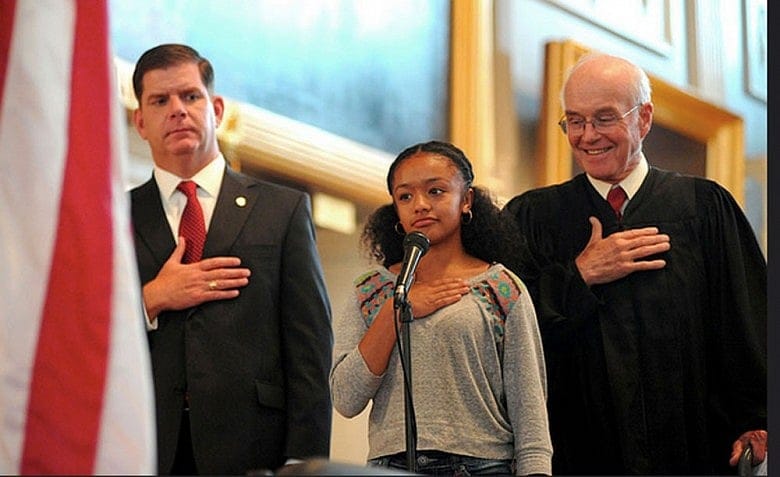E pluribus unum: Out of many, one

Immigration is an issue that is not going away. It has dominated the coverage of the early stages of the 2016 presidential campaign and is likely to continue to do so. And with good reason. Today, there are more than 11 million people living in America illegally. And although a majority of Americans favor allowing them to stay — provided certain requirements are met — sizable majorities want the government to deport criminal aliens, stop rewarding (indeed, incentivizing) illegal immigration with government benefits, and improve border security to stop the flow of uninvited guests.
Behind these practical complaints, however, looms a larger, more philosophic, question: What does it mean to be an American?

